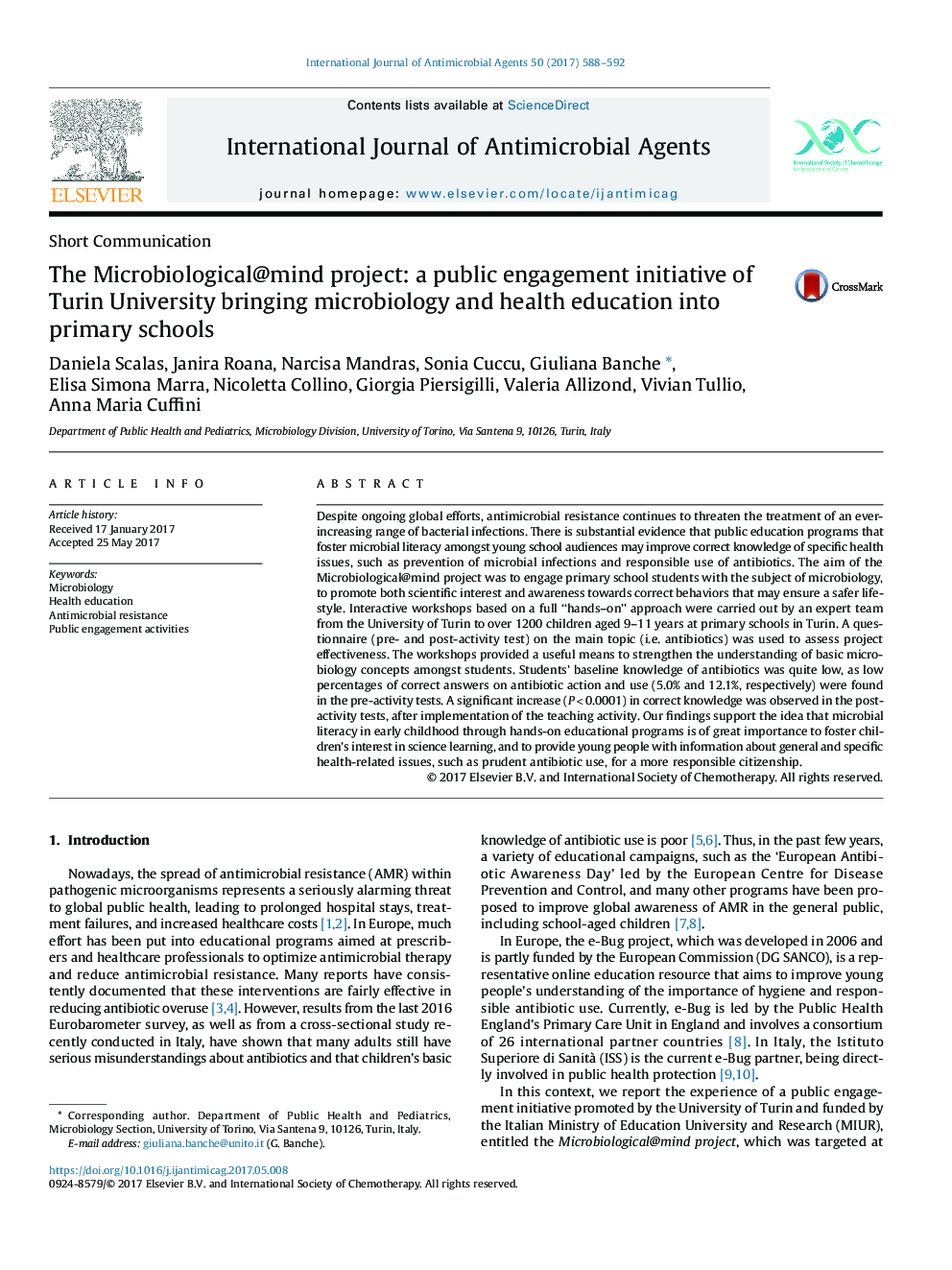| کد مقاله | کد نشریه | سال انتشار | مقاله انگلیسی | نسخه تمام متن |
|---|---|---|---|---|
| 5666899 | 1591736 | 2017 | 5 صفحه PDF | دانلود رایگان |
- Public misunderstandings about microbes and antibiotics should be discouraged.
- Hands-on educational programs may help deliver key scientific messages to students.
- The use of scientific web-based resources should be implemented across Italy.
- Early childhood microbial literacy may reinforce awareness on antibiotic use.
Despite ongoing global efforts, antimicrobial resistance continues to threaten the treatment of an ever-increasing range of bacterial infections. There is substantial evidence that public education programs that foster microbial literacy amongst young school audiences may improve correct knowledge of specific health issues, such as prevention of microbial infections and responsible use of antibiotics. The aim of the Microbiological@mind project was to engage primary school students with the subject of microbiology, to promote both scientific interest and awareness towards correct behaviors that may ensure a safer lifestyle. Interactive workshops based on a full ''hands-on'' approach were carried out by an expert team from the University of Turin to over 1200 children aged 9-11 years at primary schools in Turin. A questionnaire (pre- and post-activity test) on the main topic (i.e. antibiotics) was used to assess project effectiveness. The workshops provided a useful means to strengthen the understanding of basic microbiology concepts amongst students. Students' baseline knowledge of antibiotics was quite low, as low percentages of correct answers on antibiotic action and use (5.0% and 12.1%, respectively) were found in the pre-activity tests. A significant increase (Pâ<0.0001) in correct knowledge was observed in the post-activity tests, after implementation of the teaching activity. Our findings support the idea that microbial literacy in early childhood through hands-on educational programs is of great importance to foster children's interest in science learning, and to provide young people with information about general and specific health-related issues, such as prudent antibiotic use, for a more responsible citizenship.
Journal: International Journal of Antimicrobial Agents - Volume 50, Issue 4, October 2017, Pages 588-592
